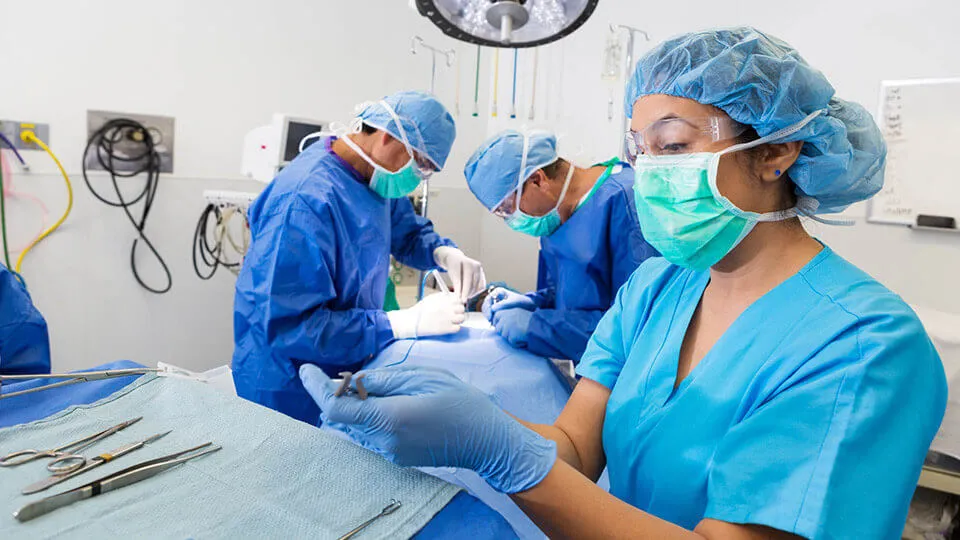Introduction to Surgical Technology
What is a surgical tech? A surgical technologist, commonly referred to as a surgical tech www.german-seo.com/, is a vital member of the operating room team. They assist surgeons, nurses, and other medical professionals before, during, and after surgical procedures. Their primary responsibility is to ensure that the operating room is prepared and equipped for surgery, as well as to assist during the procedure itself.
Educational Requirements
High school diploma or equivalent To become a surgical tech, a high school diploma or GED equivalent is typically required. It provides the foundational knowledge necessary to pursue further education and training in surgical technology.
Surgical technology program Most aspiring surgical techs enroll in a surgical technology program offered by community colleges, technical schools, or hospitals. These programs typically last between 9 months to 2 years and include classroom instruction as well as hands-on clinical experience in operating room settings.
Certification While certification is not always mandatory, it is highly recommended as it demonstrates competency and commitment to the profession. The National Board of Surgical Technology and Surgical Assisting (NBSTSA) offers the Certified Surgical Technologist (CST) credential, which can be obtained by passing an exam.
Skills and Qualities Needed
Attention to detail Surgical techs must possess keen attention to detail to ensure that all instruments and equipment are sterilized and arranged correctly before surgery. They also assist in maintaining a sterile environment throughout the procedure.
Communication skills Effective communication is essential for surgical techs to relay information between members of the surgical team. Clear communication helps ensure that everyone is on the same page and that the procedure runs smoothly.
Ability to work under pressure Working in the operating room can be fast-paced and high-pressure. Surgical techs must remain calm and focused, even in stressful situations, to assist the surgical team efficiently and effectively.
Job Outlook and Opportunities
Growth in the field The demand for surgical techs is expected to grow in the coming years due to an aging population and advances in medical technology. This growth means ample job opportunities for individuals entering the field.
Different work settings Surgical techs can work in various settings, including hospitals, outpatient surgery centers, and physician offices. They may also have the opportunity to specialize in specific types of surgery, such as orthopedics or neurosurgery.
Steps to Become a Surgical Tech
Research and self-assessment Before pursuing a career as a surgical tech, it’s essential to research the profession thoroughly and assess whether it aligns with your interests, skills, and career goals.
Choose the right educational path Selecting a reputable surgical technology program is crucial for acquiring the necessary knowledge and skills. Consider factors such as program accreditation, curriculum, and clinical experience opportunities.
Gain hands-on experience Hands-on experience is invaluable in preparing for a career as a surgical tech. Many programs include clinical rotations where students can apply their classroom knowledge in real-world healthcare settings.
Obtain certification While certification is not always required, becoming a Certified Surgical Technologist (CST) can enhance job prospects and earning potential. Prepare for the certification exam by reviewing study materials and practicing test questions.
Salary and Compensation
Average salary range The salary of a surgical tech can vary depending on factors such as location, experience, and employer. However, the average salary range for surgical techs is typically competitive and offers opportunities for advancement.
Factors affecting salary Several factors can influence a surgical tech’s salary, including geographic location, level of experience, additional certifications, and the type of healthcare facility.
Career Advancement
Continuing education Continuing education is essential for staying current with advances in surgical technology and maintaining certification. Surgical techs can pursue additional training and certifications to expand their skills and advance their careers.
Specialization opportunities Surgical techs may have the opportunity to specialize in specific areas of surgery, such as cardiovascular, orthopedic, or robotic surgery. Specialization can lead to increased job opportunities and higher earning potential.
Importance of Networking
Joining professional organizations Joining professional organizations such as the Association of Surgical Technologists (AST) can provide networking opportunities, access to resources, and professional development opportunities.
Attending conferences and workshops Attending conferences, workshops, and other continuing education events is an excellent way for surgical techs to expand their knowledge, stay updated on industry trends, and connect with peers and industry experts.
Conclusion
Becoming a surgical tech requires dedication, education, and a commitment to excellence. By following the steps outlined in this article and continuously investing in your education and professional development, you can embark on a rewarding career in surgical technology.










